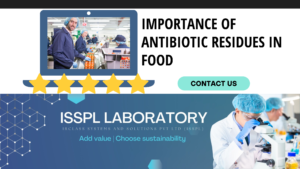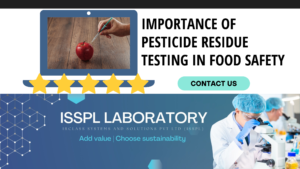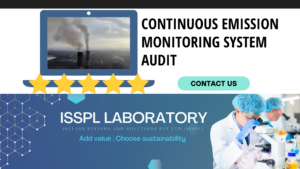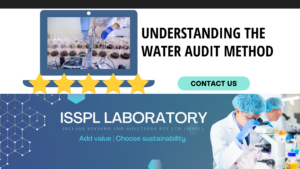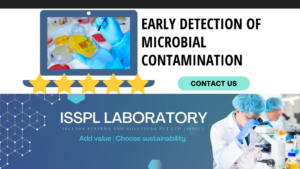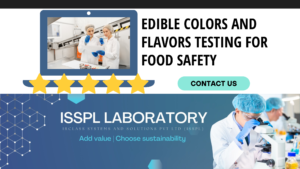An Overview by Team ISSPL - Analytical Testing Laboratory in India
ToggleThe updated solutions heavy metal testing checks for potentially harmful metals in the food components. With the growing pollution rate, healthcare providers have prioritized heavy metal testing to the next level. The symptoms of heavy metal poisoning and exposure to heavy metals make the testing steps indispensable throughout the globe.
The heavy metal test checks the unmonitored levels of toxic or potentially harmful metals. Toxic heavy metals in the environment, foods, and water can damage the body’s organs irreversibly. The human body may absorb heavy metals through the pores on the skin, breathe the pollutants in, or consume them unknowingly.
These heavy metals are safe for the human body but in limited and checked amounts. The extensive consumption of these metals can lead to metal poisoning. The overexposure to toxic heavy metals can be fatal for the body as well.
Food and environmental safety – A growing concern
Heavy metal pollution is a global concern at this moment. It has created a danger to the environment besides posing critical health hazards to humans. The rapid pace of urbanization, soil treatment techniques, and industrialization in multiple countries with extremely high populations have worsened the conditions to the next level. Food security is a crucial issue for sustainable global development.
The adverse effects of unexpected and toxic metallic contaminants on crop quality have threatened food safety and consumer health. Heavy metals and different metalloids like Hg, As, Pb, Cd, Cr, etc., can impact the human metabolism slowly. It can increase bodily damage and result in fatal for the consumers. The amount of heavy metal contamination in the farm soil and crop ecosystem needs careful monitoring. Otherwise, it will only increase human health risks in the long run. The geographical pathways of heavy metals in the soil ecosystem are a death threat to the world.
It is high time to focus on the metallic contaminants inside food crops and soil. The testing mechanisms will help you obtain an accurate report on the contamination level. Industries and crop managers can impose the best management strategies to regain sustainability in the production line and ecosystem.
Common heavy metals – Know them rightly.
Heavy metals are natural metals. They are easy to spot in small amounts in living creatures. The unchecked exposure of heavy metals in higher concentrations is hazardous for nature as well. The heavy metals are toxic to children and they create neurological effects during the development stage.
Chronic exposure can lead to serious health problems, including cancer, anemia, brain cell issues, kidney damage, etc. Renowned authorities like the FDA have made it mandatory to monitor the heavy metals in food and other products for the long-term benefit of the consumers.
- Cadmium or Cd gets released into the atmosphere for manmade activities and animals. Different humans can get exposed to Cadmium distinctively. Cadmium pollution in the marine environment happens via metal absorption, industrial waste disposal, and soil sedimentation. Hence, checking the metallic presence is integral.
- Mercury is a hazardous heavy metal, and one can find it in the biosphere. The increasing industrial activities have increased the contamination rate in the atmosphere.
- Lead is a non-biodegradable and toxic heavy metal. Lead is available in nature and in low amounts. Atmospheric lead levels are no longer under the normal level due the unchecked human activities like industrialization, chemical manufacturing, mining, and fossil fuel combustion. It reacts and gets into the food chain unknowingly. Thus, checking the lead pollution levels with lab testing is critical.
- Manganese is among the commonly found toxic heavy metals. Manganese is available in various oxidation states in the environment.
- Cobalt is among the most impactful heavy metals for the food chain and environment. It is abundantly available in the vegetation, soils, rocks, and water. The unchecked exposure of Cobalt is dangerous to humans. The metal affects the human body, and unchecked Cobalt discharges into the environment can lead to unwanted fatalities.
The end-to-end testing steps – Know them rightly.
With so many heavy metals in the nature and food chain system, the testing steps need to be robust for accurate detection. The testing process must be comprehensive. It must begin at the grassroots level, with the manufacturer at the facility. The manufacturers must carefully obtain the sample and send it to the laboratory by following the best safety norms. The top laboratories follow a careful and comprehensive approach while testing an entire lot.
Random sample testing is also an integral process to ensure optimal detection of metals in the food component. The best-in-class laboratories pull more than just the first 50 grams of product off the line. They deliver the best results by pulling random samples from the product lot. Packaging is also vital to homogenize the samples. It also helps enhance testing reliability.
For instance – One must check processed food components like dark chocolates to identify the presence of heavy metals. The best lab testers blend all samples in a single mixture and follow a comprehensive approach. They calculate the concentration and quantity of heavy metals in the food and provide an accurate Certificate of Analysis (COA).
Closing note – Lab testing simplifies the needs
Heavy metals testing is a mandatory requirement, and one must ensure optimal compliance to provide safe consumables to consumers. Testing is a critical part of the food safety process. Checking the levels of heavy metal contaminants is essential at various stages of the product development process. One can screen raw materials prior to formulation and stay assured of food safety.
Certified laboratories provide end-to-end solutions for heavy metals testing for food, feed supplements, spices, etc. All these products are vulnerable to heavy metals and need the testing solutions offered by accredited laboratories. With the best testing facilities, ensure the following –
- Swift turnaround time
- Reliable testing mechanisms
- Hassle-free access to the reports
- Responsive service and comprehensive testing
- Regulatory consulting with experts
IRCLASS Systems and Solutions Pvt Ltd (ISSPL) laboratory, the top analytical testing service provider in India, can deliver the solution you need. Obtain the ideal testing solutions that ensure reliable quality and safety testing for food and agricultural components.
